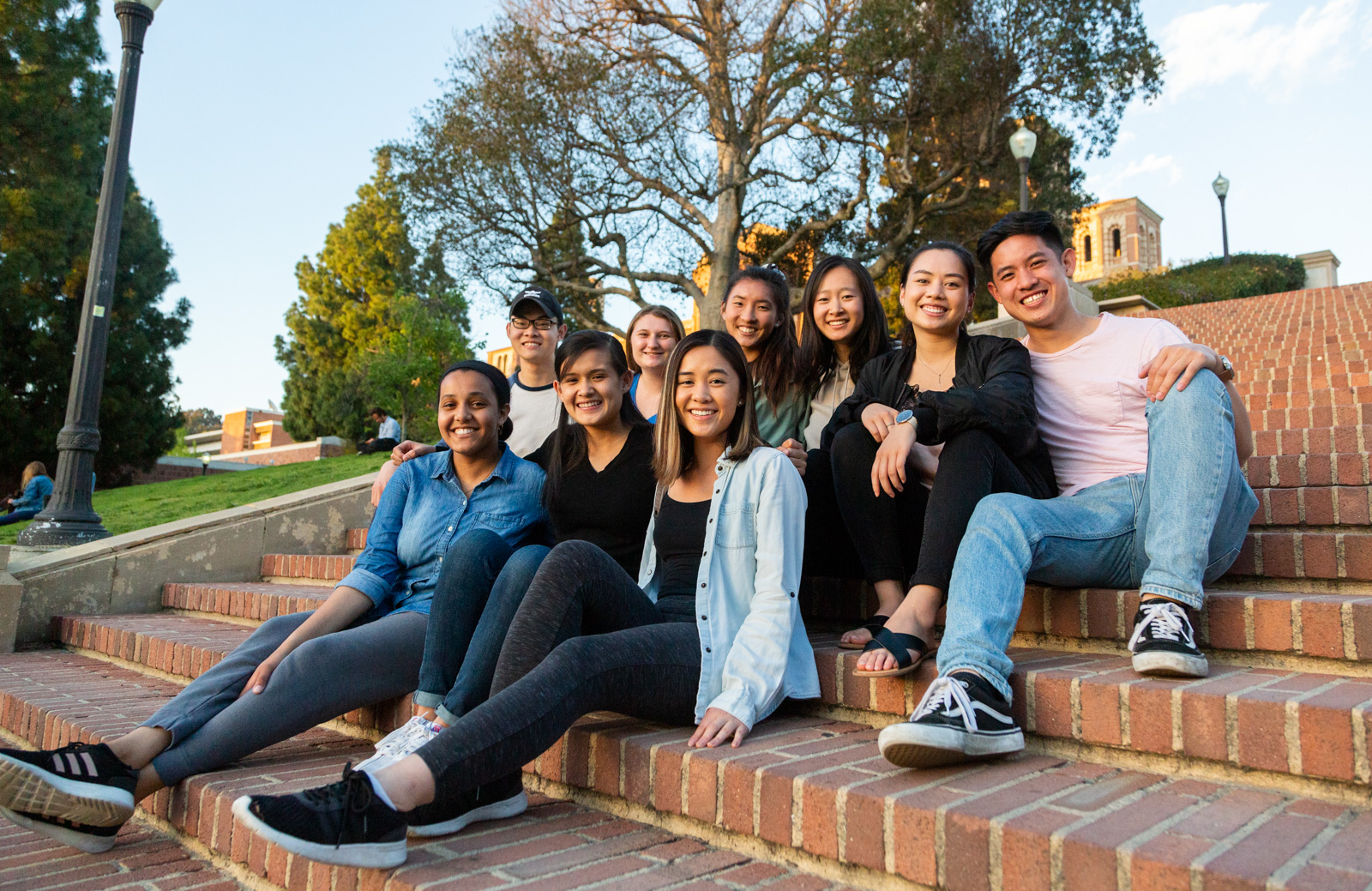Student project engages with foster youth to offer guidance and support

Members of Project Maryvale travel to a foster home in Rosemead twice a quarter to help educate foster girls about healthy living. The group also works to raise public awareness about foster youth in Los Angeles. (Amy Dixon/Photo editor)
By Martín Bilbao
April 23, 2019 12:18 a.m.
A student-directed project aims to educate Los Angeles foster girls about healthy living and raise public awareness about foster youth.
Project Maryvale partners with Maryvale Residential Homes, a foundation in Rosemead, California, that houses foster girls ages 6 to 18, to put on educational presentations for Maryvale’s residents.
This project, which started in 2014, is one of several projects under Medical Experience through Service in Healthcare, a student organization that aims to promote health education. MESH was founded in 2012 and connects students with volunteer opportunities at local and international nonprofit health organizations.
Members on the project visit Maryvale about twice every quarter, said Monica Diaz, a fourth-year environmental science student and co-director of Project Maryvale.
During each visit, members put on 20- to 30-minute interactive presentations for groups of about 10 foster girls. Presentation topics span from personal health to professional development, said Elizabeth Hoang, a fourth-year physiological health science student and co-director of the project.
“We really try to empower these girls to stand up for themselves and be able to reach out to others when they need help,” Hoang said.
Sagar Telang, MESH’s finance chair and a fourth-year biology student, said it can be a challenge to secure all the necessary funding for Project Maryvale. However, in winter quarter they were able to use funding from the Undergraduate Students Association Council to secure arts and crafts for their site visits, Telang said.
“Initially it was a little worrisome and challenging, but over time it’s become kind of routine,” Telang said. “Usually we get a little less than what we asked for but we can compensate for that by applying for more grants and funding sources.”
Project Maryvale recruits at the start of spring quarter, unlike other MESH projects that begin recruiting in fall quarter, because members need the summer to complete necessary paperwork and training for site visits, Hoang said.
Many of the girls at Maryvale Residential Homes have experienced physical or psychological abuse or neglect, so members must be sensitive toward them, Hoang said.
Project members have to be mindful of their personal privileges when speaking to the foster girls, Diaz said.
“In the presentation we might say things that the foster girls might find triggering or that they might not connect to. We don’t want to remind them of what they don’t have,” Diaz said. “We just want to be there as support and say something that they can learn.”
Project members don’t always meet with the same foster group, which makes it difficult to develop long-term bonds with the foster girls, Diaz said. However, she said these brief encounters are still rewarding.
“I met girls that I admire even though I’m older than them. One of the girls wants to be an engineer and just graduated high school early,” Diaz said. “Just hearing those stories is one of my favorite things about Maryvale.”
Project Maryvale also aims to spread awareness about foster youth struggles by running a Facebook page called Foster Awareness for Youth.
Participating in Project Maryvale allows members to better understand the struggles of underserved communities UCLA students may not come in contact with every day, Hoang said.
“I feel like at UCLA we are all in this bubble and all we think about is school, our next midterm and what we have to do next. Whenever we’re at these site visits I feel very mindful about what’s happening around me,” Hoang said. “Just seeing the girls happy really does make an impact in your own life.”
Annie Kokoyan, a co-director of MESH’s Project Health Fair and a third-year psychology student, said she also felt more aware about the plight of underserved communities when working on Project Health Fair.
“Most important, it’s really made me aware of low-income communities. Education is key to be able to do something to make a difference,” Kokoyan said. “It really has empowered me and inspired me to act upon inequalities in these communities.”
Lucy Dong, a third-year physiological science student and MESH outreach director, considers preventative health education as a key element of MESH.
“I think education is the most important tool that someone can have. It doesn’t just stop with whoever you work with,” Dong said. “The patient can use that education and teach others – it spreads over time.”


